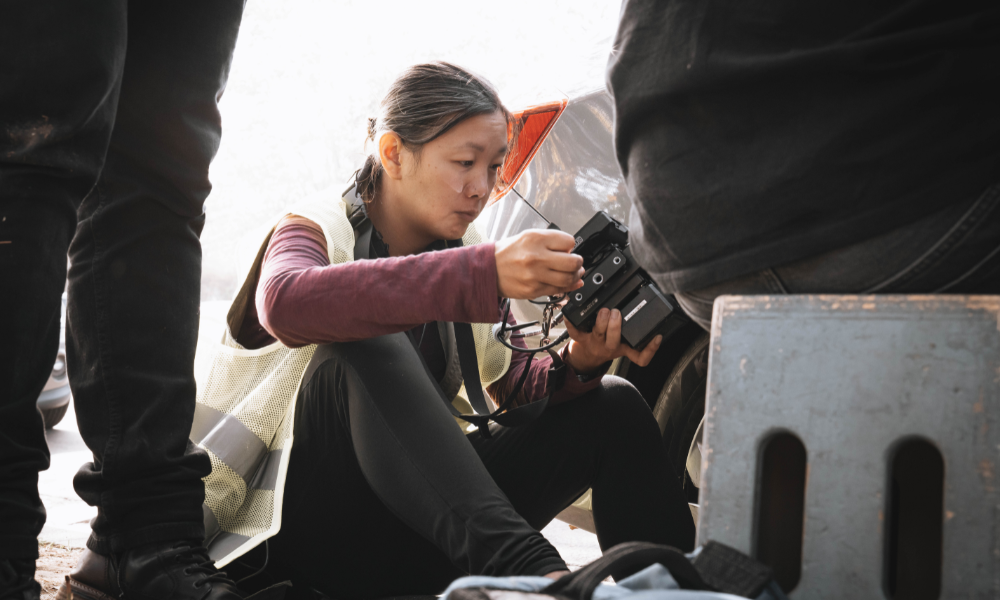‘The Harvest’ movie director delves more into the complexity of families in her latest film

Los Angeles – Cambodian American filmmaker Caylee So was born in a refugee camp along the Cambodia-Thai border in 1981.
After the fall of the Khmer Rouge regime, her family immigrated to the United States and settled in Northern Virginia.
At 18, she left home and joined the U.S. Army.
To escape her world, she watched movies. Among all of the films she watched, one changed her life and made her decide to be a filmmaker. And that movie was Hilary Swank and Clint Eastwood’s “Million Dollar Baby.”
After watching the movie, she confessed in an interview that she wanted to transport audiences as well to another world and create an imaginary world.
Now a director, Caylee So, together with actor-writer-producer Doua Moua have made “The Harvest,” a film that delves into the psyche of each family member, their dark secrets, their passions, their strengths, and weaknesses, and the love that keeps them together.
The drama stars Doua Moua (Thai), Perry Yung (Cher), Dawn Ying Yuen (Youa), and Chrisna Chhor (Sue).
We were able to interview director So by email.
What inspired you to do this film?
The need to see this very specific Southeast Asian family on screen and the feeling that I had known them my whole life.
What were the challenges you encountered and how did you overcome them?
In the original script, the story took place in Minnesota, but because of production limitations, we had to transplant the story to Long Beach, California. This allowed us more flexibility as far as locations, but it also meant that we had to make some changes so that the script and characters would specifically represent the community here in Los Angeles.
What do you think audiences will get after watching the movie?
Families are complex.
_2023_03_14_11_24_01.png)
How did you find the cast and what made you choose them?
We had a great casting director Dea Vise, who helped us find all our of supporting roles, but Doua (writer, producer, actor) and I were in constant conversation about casting the family.
It had to make sense to the both of us.
For Cher (the father), we had a couple of actors we were considering, but when Perry Yung's name came up, I was already a huge fan of his work on “Warriors” so I told Doua to sign him on. It was an immediate and instinctual decision.
With Dawn Ying Yuen, who plays Youa (the mom), I had directed her in a short movie in film school and had always kept her in mind for future projects. This just happen to be one of those roles I thought she can absolutely sink her teeth into (and she did!).
With Chrisna, who plays Sue (the sister), we really wanted to cast a Southeast Asian actor. And this is not a small task. We watched and mulled over so many audition tapes; we even auditioned friends and family of friends. We did a couple of screen tests, but essentially, I knew I wanted Chrisna (even as early as her audition tape).
_2023_03_14_11_25_01.png)
What is the significance of the title to you?
During the harvest season, Hmong cultures used the slash-and-burn method of agriculture. This is a way of clearing the area, to make it suitable for farming. The ash provides a nutrient-rich layer to help fertilize the land, but the traditional method itself is destructive and unsustainable. Disrupting an already fragile ecosystem.
In a way, the family in this film is like that land. You have to evolve in your methods of nurturing it, or risk destroying it completely.
_2023_03_14_11_25_59.png)
What makes this family drama different from other family dramas?
Every family behaves and functions differently. Our film tackles all the complexities of being a Hmong family, of being a refugee, of the clear generational differences and divides. The struggle to break free of roles assigned to you at birth. It’s a compelling look inside that narrative.
What is next for you after this project?
A documentary called “Khmer Aspora.” A movement to innovate Khmer music and dance, as told through the lens of a Cambodian American rapper. — LA, GMA Integrated News



